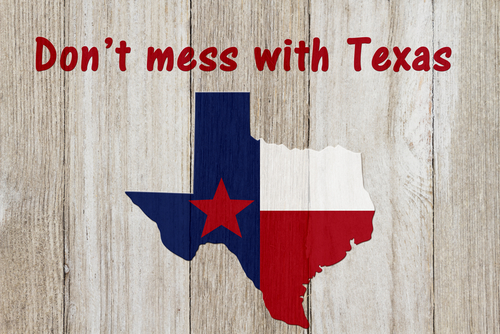
Texas Stands Firm Against Mexico’s Resistance To Border Enforcement
As part of an ongoing legal drama that has been playing out in recent weeks, Texas has implemented Senate Bill 4 (S.B. 4), escalating its efforts to control the surge of illegal immigration across the state’s border with Mexico. Despite backlash from Mexico and criticism from the Biden administration, the Lone Star state continues to assert its right to protect its borders amid what officials describe as an unprecedented invasion of illegal migrants.
Gov. Greg Abbott (R), standing firm against external pressures, argues that Texas has no choice but to take matters into its own hands due to the federal government’s failure to address what he labels an “invasion.” This strong stance follows the temporary enactment of S.B. 4, which grants Texas the authority to detain and deport individuals crossing the border unlawfully.
Mexico slams Texas over immigration law, won't accept repatriations from state after SCOTUS ruling https://t.co/q3WfidqaRl
— Fox News (@FoxNews) March 20, 2024
Mexican President Andrés Manuel López Obrador called the law “draconian.” He said flatly that Mexico would not accept deportations from Texas “under any circumstances.” Mexican Foreign Minister Alicia Bárcena warned that her nation would bolster law enforcement on its side of the border to prevent illegal migrants from being sent back over from Texas.
Many Mexican politicians and U.S. Democrats have labeled the Texas law as “discriminatory,” claiming it promotes racial profiling and threatens to “tear families apart.” The White House, siding with Mexico, maintains that immigration is solely a federal issue, accusing Texas of creating “chaos” with its state-level efforts. However, the federal government’s failure to enforce its constitutional duties has led to an unsustainable and imminently dangerous situation, forcing states like Texas to fend for themselves.
The U.S. Fifth Circuit Court of Appeals is currently deliberating the fate of S.B. 4, and the outcome could have significant implications. Should the law be upheld by that court — and ultimately by the Supreme Court — it could redefine the roles states play in immigration enforcement and further strain U.S.-Mexico relations.
The conflict over S.B. 4 reflects deeper divisions within the United States and between its federal and state governments over immigration policy. Texas, feeling the immediate impact of border crossings, has taken a stand that resonates with many Americans who are frustrated with what they see as an ineffective federal response to border security.
Texas stands as a state pushed to its limits, taking necessary steps to protect its people and their safety in the absence of federal action.